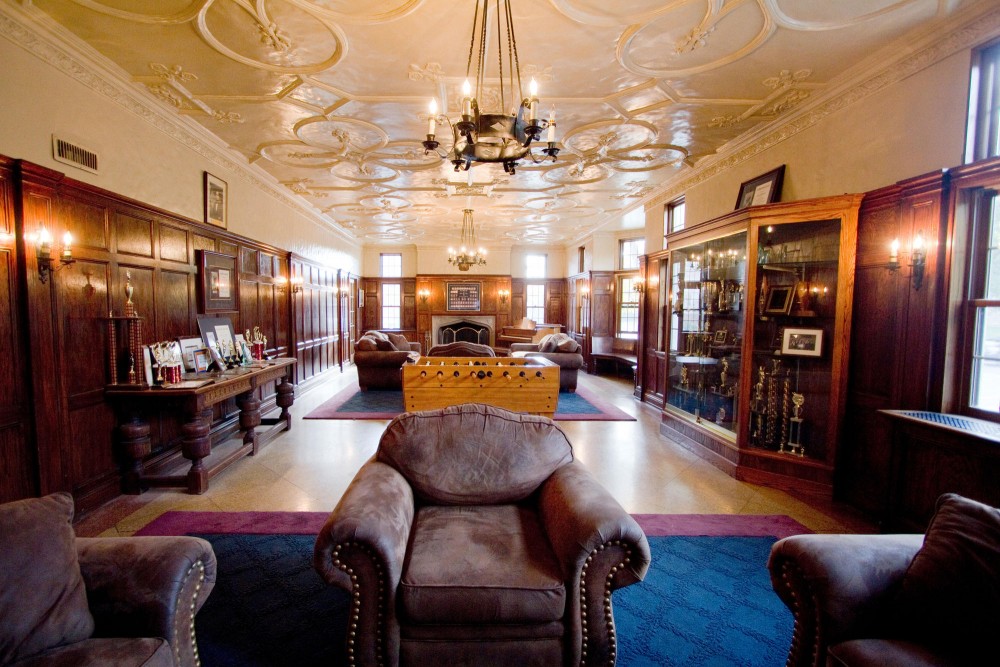One of the oldest University of Minnesota fraternities will be getting a face-lift this semester âÄî a lengthy process for a building the City of Minneapolis claimed as a historic site.
In November, Phi Gamma Delta, or FIJI, will start the first major renovation on its 100-year-old home. The chapter is planning to replace the houseâÄôs heating system and update the bathrooms.
But the house, along with 32 other fraternity and sorority buildings around campus, bears a local historic designation, which means all major work has to be approved by the city.
In 2003, the City of Minneapolis designated Fraternity Row âÄî 19 buildings from 1515 to 1901 University Ave. SE âÄî a historic district. Other greek properties on Fourth and Fifth streets southeast and on 10th Avenue Southeast have individual designations.
All of the houses were built between 1883 and 1936.
âÄúThe upkeep gets tougher and tougher every year,âÄù said Beta Theta Pi President Joel Livingood.
To renovate, chapters have to follow a set of guidelines set by the Minneapolis Heritage Preservation Commission, which approves all plans for exterior renovations, new construction, demolition and moving.
The renovations cannot change the âÄúhistoric characterâÄù of the buildings, according to the guidelines. But the stipulations, which mandate the use of more expensive material to preserve the original look of the property, can drive up costs.
âÄúWe redid our roof this summer and we had to do that as it had been done originally,âÄù said Delta Chi President Tim Bohl. âÄúIt almost doubled our costs to do that. It really hindered our ability to do other projects.âÄù
Many of the historic greek houses lack air conditioning and most, like FIJI, are still heated by boilers. In combination with big, old windows, heating costs can be high, said Jonathan Rief, president of Delta Tau Delta.
During recent structural renovation, for example, Beta Theta Pi refilled the mortar between the brick façade and repaired the roof. But they needed the cityâÄôs permission to replace the buildingâÄôs windows with 105 new energy-efficient windows and to replace the boiler.
To keep rent prices competitive, the renovations were paid for with the help of alumni donations, said David Stiff, the treasurer of Beta Theta PiâÄôs Housing Corporation Board.
âÄúThereâÄôs been a tremendous amount of support from alumni,âÄù Stiff said.
Stiff said the Housing Corporation Board has to find a balance between keeping the building up to code and keeping it historic.
âÄúThe first and foremost thing we have to do is make sure we provide a safe environment to the members of the house,âÄù Stiff said.
For most members, the hardships of upkeep are overshadowed by the ability to live in the house where their fraternityâÄôs members have been living for decades.
âÄúIt really gives you a sense of the history of the chapter and whatâÄôs gone on to get us where we are,âÄù Bohl said.
The houses show their history through huge fireplaces, old wood paneling and original light fixtures. Most houses have a study or library containing bookshelves full of records and old books.
âÄúThere is tons of character,âÄù said Rief. âÄúItâÄôs a beautiful set up. The location canâÄôt be beat. It creates a lot of pride.âÄù


